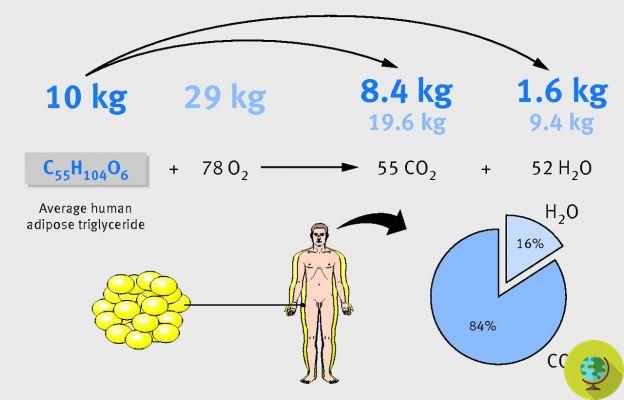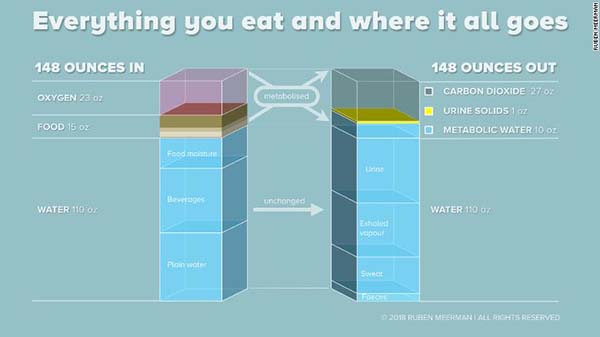How is fat in our body "burned" when we lose weight? Where does it go? An Australian research reveals it and clarifies it
Don't store avocado like this: it's dangerousGo on a diet. The world is increasingly obsessed (more or less rightly given the high obesity rate in Western countries) with weight loss. Despite this, few people know where the fat really goes that you lose when you lose weight. What does it turn into? How is it eliminated?
Often even doctors, dieticians and personal trainers do not know exactly how the fat in our body is "burned". Proof of this is an Australian research published a few years ago in the British Medical Journal and conducted with the coordination of physicist Ruben Meerman. The team of experts interviewed 150 specialists and found large gaps in their awareness of how body fat is transformed and eliminated.
The most common, but wrong, idea is that the burnt fat is converted into energy, then there are those who even replied that it turns into muscle or that it is eliminated through the colon. Only 3 people gave the correct answer.
Research has revealed how fat is transformed
How fat is transformed

@BmJ
The correct answer is that fat is converted into carbon dioxide and water. These two substances join the bloodstream until they are dispersed from the body in the form of urine or sweat.
Research has shown that when 10 kilos of fat are lost, 8,4 kilos will be shed from the lungs while the remaining 1,6 turns into water. Basically, although it is difficult to imagine, almost all the weight we lose is exhaled out of our body via the respiratory system.

As Meerman explained:
"Losing weight means unblocking the carbon stored in fat cells"
In reality, not only fats but everything we eat then comes out of our body via the lungs. Every digested carbohydrate and nearly all fat is converted into carbon dioxide and water. The same goes for proteins, only a few of these substances, in fact, turn into urea and are excreted through the urine.
The only things that get into the intestine intact are the fibers. Everything else is absorbed into the blood and over time will be expelled thanks to the help of the lungs. The good news is that even sleeping we lose weight, in fact during the night we exhale about 200 grams of carbon dioxide.
What experts advise for weight loss
Unfortunately, it is not enough to breathe more to lose weight. Even if we try to exhale longer or faster we will not be able to lose weight but only maybe hyperventilate or feel dizzy. The only healthy way we have to increase the expulsion of carbon dioxide, and therefore burn fat and extra pounds, is to do physical activity and in general move more avoiding a sedentary lifestyle.
A simple walk triples our metabolic rate but also daily activities like cooking, vacuuming, sweeping, etc. they increase our ability to exhale. Of course, experts point out, any diet that provides less "fuel" than our body needs (ie a low-calorie diet) will lead to weight loss but with some confusion as to where fat actually goes.
Per approfondire: Bmj – When somebody loses weight, where does the fat go? (doi.org/10.1136/bmj.g7257)
On diet, weight loss and fats you may also be interested in:
- Visceral fat: what it is, how it is measured and why it is dangerous if it exceeds this threshold
- Diet: better low in fat or low in sugar? And how much does DNA affect?
- Reducing fat doesn't make you lose weight: the shocking results of a new study
- Is it possible to lose weight only where it is needed?
- What kind of belly do you have and the most effective ways to reduce it


























